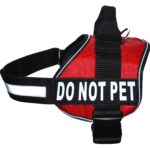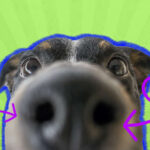Do Bobcats Attack Dogs
Bobcats and Dogs: A Comprehensive Guide to Understanding the Relationship
When it comes to the safety of our furry friends, many pet owners are concerned about the possibility of wild animals attacking their dogs. One such animal that often comes up in this discussion is the bobcat. Bobcats are known for their elusive nature and stunning appearance, but do they pose a threat to dogs? In this article, we will explore the relationship between bobcats and dogs, and answer the question: do bobcats attack dogs?
What is a Bobcat?
Before we dive into the main topic, let’s take a moment to understand what a bobcat is. Bobcats are medium-sized wild cats that are found throughout North America. They are named after their short “bobbed” tail, which is only 5-6 inches long. Bobcats have distinctive tufted ears and spotted fur that can range from grayish-brown to reddish-brown.
Bobcats are carnivores and primarily hunt small mammals like rabbits and rodents. However, they have been known to prey on larger animals like deer or domestic livestock in some cases. Despite their relatively small size (averaging around 20 pounds), bobcats are skilled hunters with razor-sharp teeth and claws.
Do Bobcats Attack Dogs?
Now, let’s get to the heart of the matter: do bobcats attack dogs? The short answer is yes, it’s possible. However, it’s important to note that bobcat attacks on dogs are relatively rare occurrences.
In most cases, bobcats will avoid confrontation with dogs and other larger animals if they can. They prefer to hunt smaller prey that they can easily overpower. However, if a bobcat feels threatened or cornered by a dog (especially if there are young kittens nearby), it may become aggressive and attack as a means of self-defense.
It’s also worth noting that certain breeds of dogs may be more at risk of a bobcat attack than others. Smaller dogs like chihuahuas or toy poodles may be seen as easy targets by a hungry bobcat, while larger breeds like Great Danes or German Shepherds may be more intimidating and less likely to be attacked.
Preventing Bobcat Attacks on Dogs
While the risk of a bobcat attacking your dog is relatively low, there are some steps you can take to help prevent it from happening:
1. Keep your dog on a leash when hiking or walking in areas where bobcats are known to live.
2. Avoid letting your dog roam freely outside, especially at dawn and dusk when bobcats are most active.
3. Install motion-activated lights or sprinklers around your property to deter bobcats from coming near.
4. Keep garbage cans securely closed and don’t leave pet food outside, as these can attract bobcats.
5. If you do encounter a bobcat while out with your dog, try to remain calm and slowly back away without turning your back on the animal.
Conclusion
In conclusion, while it’s possible for a bobcat to attack a dog, it’s not something that happens frequently. Most of the time, bobcats will avoid confrontation with larger animals like dogs if they can. However, it’s still important for pet owners to take precautions to keep their furry friends safe from potential threats.
By understanding the nature of bobcats and knowing how to prevent confrontations with them, you can help ensure that your dog stays happy and healthy for years to come. So go ahead and enjoy those hikes with your furry friend – just remember to stay alert and aware of your surroundings!



